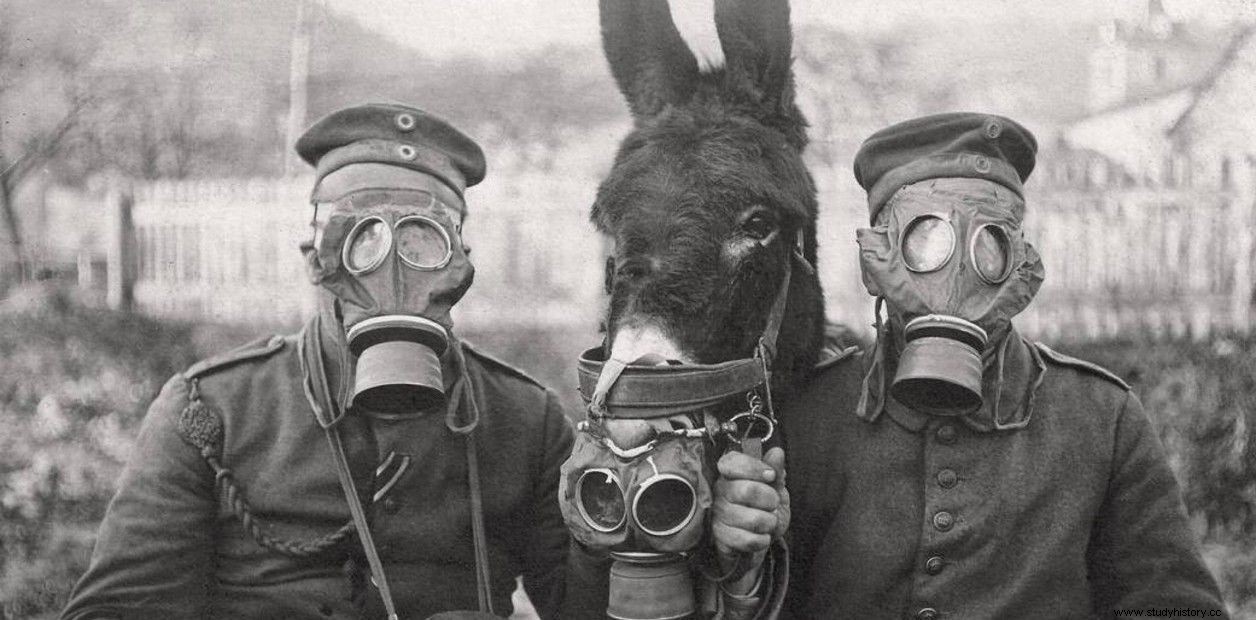
1918-2018
I Centenary of the end of the First World War
Awake Ferro Contemporary No. 1:1914. The outbreak of the Great War
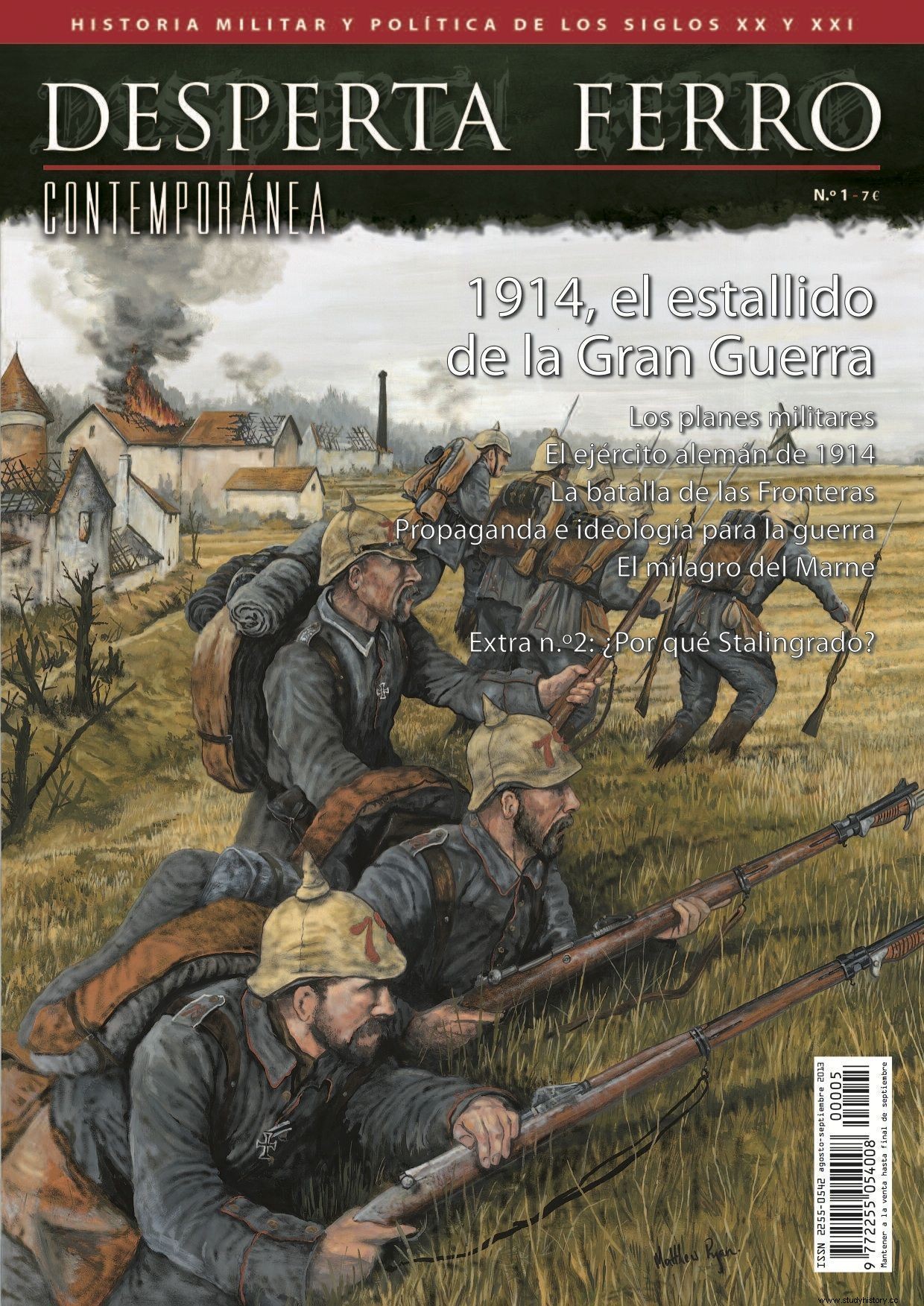
2014 marked the hundredth anniversary of the outbreak of the Great War in 1914. Beyond the opportunity of the date, it seems obligatory to dedicate the first issue of Desperta Ferro Contemporánea to the conflict that would give birth to the war that will characterize a good part of the period covered by this new publication. The First World War It can be understood globally as the desperate search for operational solutions for a type of conflict impossible to resolve under nineteenth-century approaches that would entail dramatic costs. We have chosen to focus on a small and decisive period, the first five weeks of the war in the specific setting of the Western Front. The first two months are among the bloodiest of the entire conflict, a demonstration that the limits of the challenge would be established by the capacity for suffering of individuals and the resistance of societies.
More informationAwake Ferro Contemporary No. 8:Galípoli 1915

2015 marked the centenary of the Gallipoli campaign , to which a series of aspirations were associated:the possibility that the Navy would make its way from the Mediterranean to Constantinople should lead to the capitulation of the Ottoman Empire and a complete alteration of the Balkan scenario in favor of the allies that would suppose a dagger on the back of the Central Powers. The Ottoman Empire, that secular "sick man of Europe", seemed an affordable rival, however, the Ottomans showed an increase in their military efficiency thanks to the assistance and advice of Germany. The result of all this would be a clash without strategic consequences for the war and that ended up reproducing the operational stagnation symbolized by the trenches of the Western Front; just what the Gallipoli campaign had aspired to in its genesis to provide a solution.
More informationAwake Ferro Contemporary No. 13:Verdun 1916
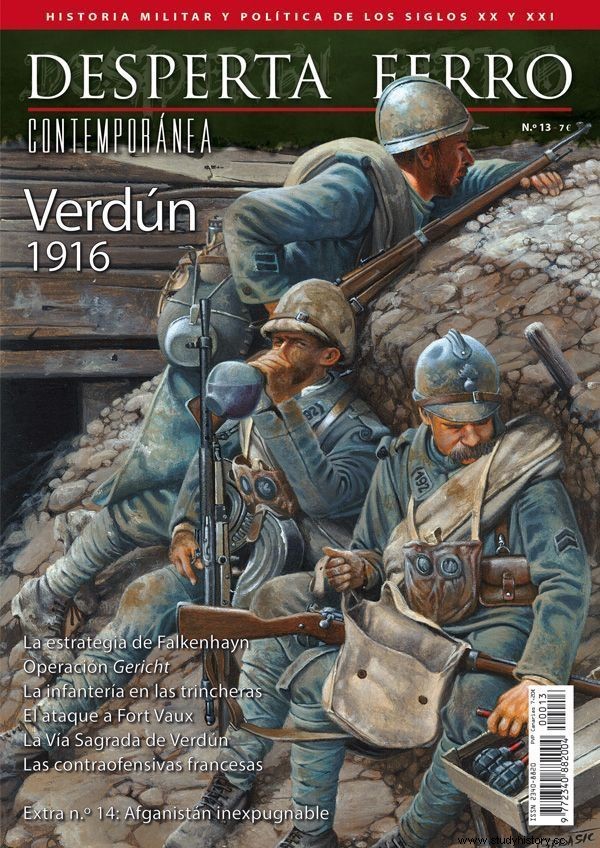
The temporal, material and above all human magnitude of the Battle of Verdun It amply justifies that a hundred years after its inception it continues to be an object of study that cannot be considered closed and that maintains a significant degree of historiographical debate. The logic of Erich von Falkenhayn's "attrition" resulted in an apparently inconclusive duel in which both sides suffered a comparable number of casualties and where, from an operational perspective, there was not the slightest alteration of the front that was significant... and however it turned out to be a decisive battle. Although at first glance it was pointless, in this battle both sides took over from their military leaders and changed their strategy. The ideas matured at the end of the battle of Verdun made believe that the coming battles could end the war. However, that did not happen. Ils ne passeront pas!
More informationAwake Ferro Contemporary #20:Lawrence of Arabia
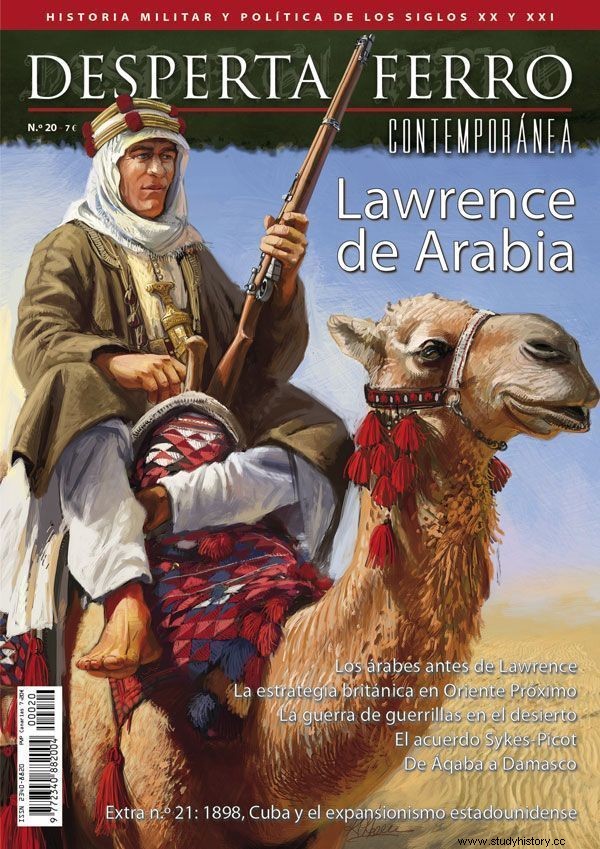
Although in reality historical events are the result of various causes, there is a legend that sometimes a single person can twist the course of history and turn what "should have happened" into "what happened". Something like this seems to have happened with the performance of Thomas Edward Lawrence in the immensity of the Arabian desert, to the point that he has become known as Lawrence of Arabia . However, the contribution of Lawrence of Arabia to the Arab Revolt continues to be discussed and, of course, he was not the only actor in it. After the war, the Arabs found their aspirations to become one country frustrated by the territorial ambitions of the French and British, and one of the men they blamed for this was Thomas Edward Lawrence. His forays into the deep desert, his writings on key figures in the rebellion, his spirit in action and in the camps made him both a hero and a villain, and are part of his particular legend, that of Lawrence of Arabia.
More informationAwake Ferro Contemporary #26:Kaiserschlacht 1918

The Kaiserschlacht , the great "battle of the emperor", was probably one of the crossroads of the First World War. On March 21, 1918, the Germans unleashed a massive offensive that broke the Allied front, destroyed unit after unit, and nearly drove the British into the Channel, captured Paris, and won. This had happened before, during the offensive that started the war in 1914, so it is not uncommon for the French and British to panic at the repetition of events. However, this first attack of 1918 failed, as those of April, May, June and July of the same year were going to do; Unlike what happened four years ago, when the German defeat was the door to a long and bloody contest, the failure of the Kaiserschlacht meant the final defeat of Germany.
More informationFor God and for the Kaiser. The Imperial Austrian Army 1619-1918
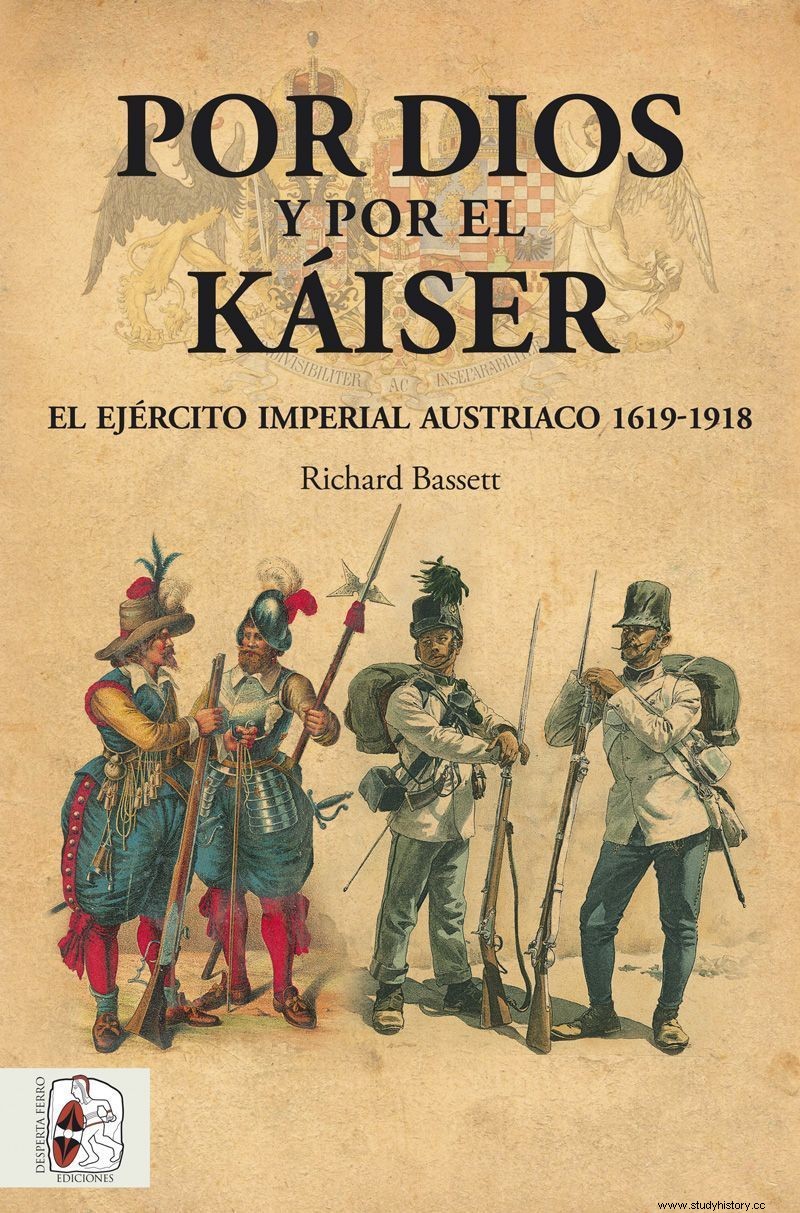
«Austria has had no luck with the biographers of she". And Hermann Bahr was right by virtue of the image of his imperial army that has come down to us, a sum of incompetence and ineffectiveness, intransigence and brutality. However, in order to have “the tedious habit of always being defeated” – the joke is Talleyrand’s – Austria, or specifically, the Habsburgs of Vienna, perpetuated themselves overcoming trances that would have shaken the foundations of any other power. A capacity for resilience rooted in the unwavering loyalty of its formidable army, which survived the devastation of the Thirty Years' War and tamed the invincible Turk; he worked miracles guaranteeing the improbable succession of his young queen and terrified Frederick of Prussia himself; he became Napoleon's sworn enemy, or endured unimaginable conditions on the battlefields of the Great War, having not fought in a generation. These do not seem like the deeds of a losing army. And it is that For God and for the Kaiser intends to banish prejudices and misrepresentations about an army that integrated soldiers from twenty nations, but with an unparalleled degree of cohesion; champion of Catholicism, he displayed an unusual religious tolerance by incorporating Protestants, Orthodox, Muslims and Jews; mainstay of the Old Regime, it protected social mobility and promotion to the highest hierarchies. A unique supranational structure in Europe whose leitmotif was to guarantee the survival of the dynasty, an objective that it more than fulfilled during three turbulent centuries. In short, with Richard Bassett the Austrian Imperial Army has found its biographer.
More informationAnd now the entire Desperta Ferro Ediciones collection with shipping costs from only €0.75 , and with an express parcel service (48-72 hours) with a flat rate of €2.99 for the Peninsula and the Balearic Islands from 1kg.
